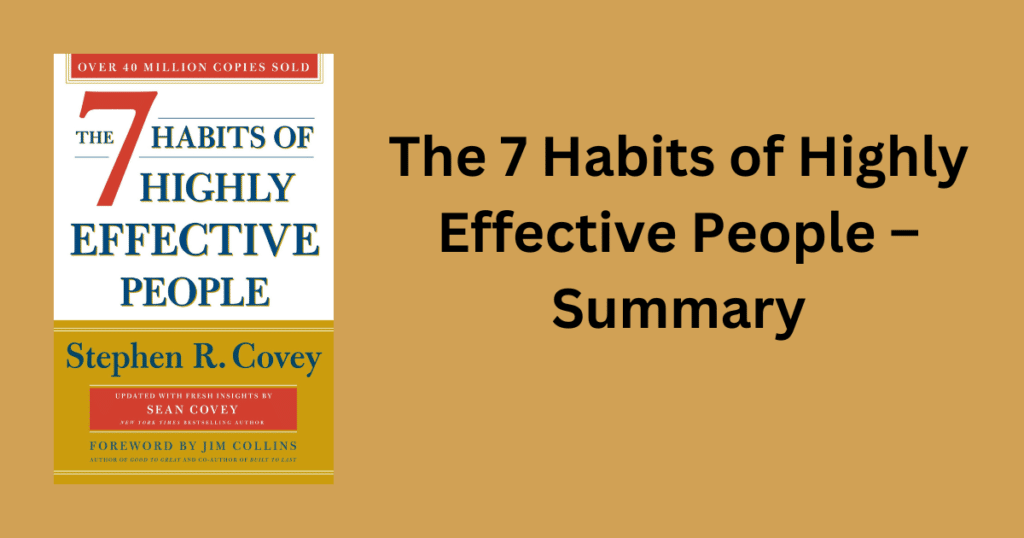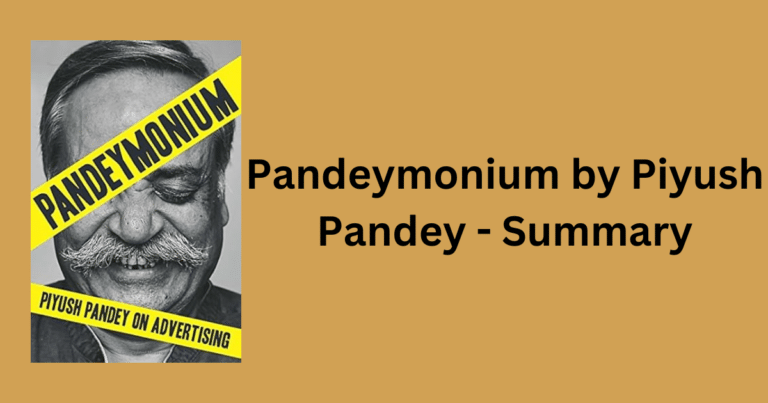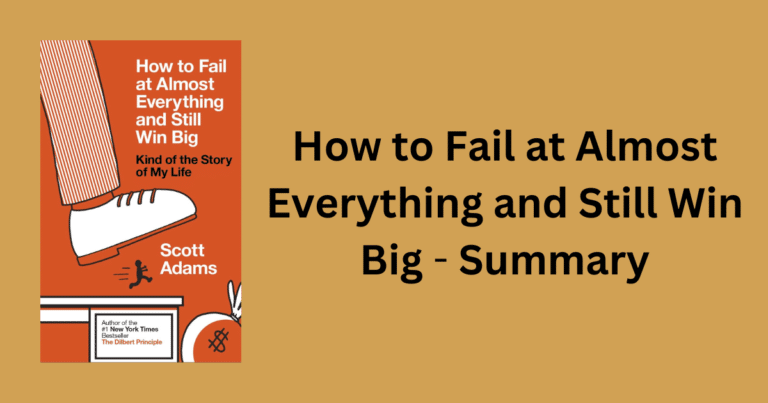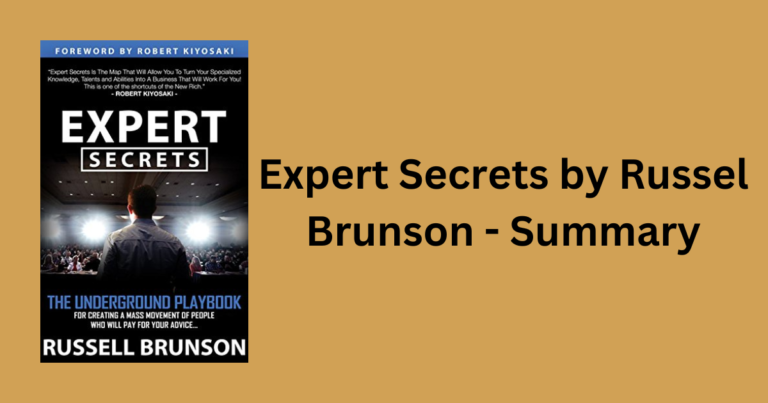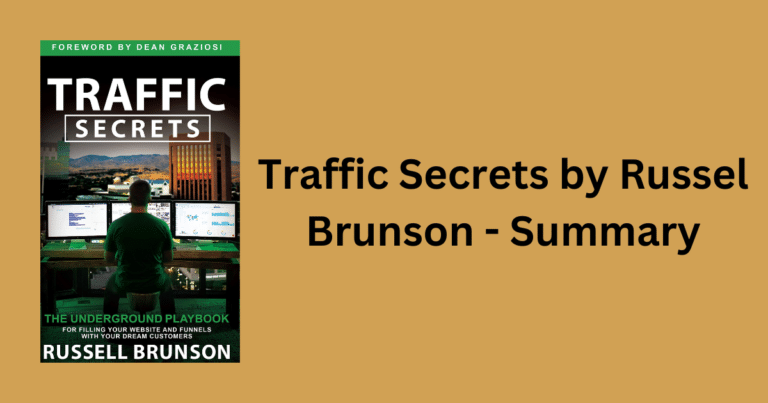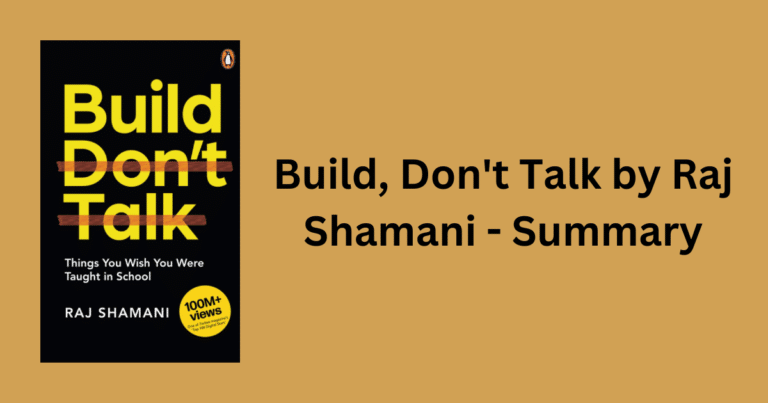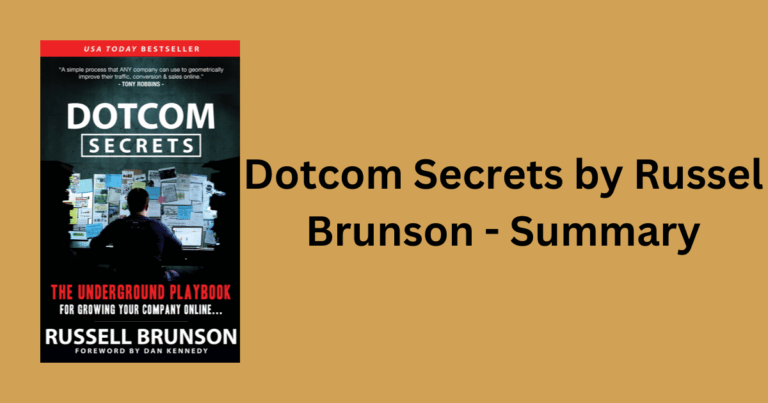The 7 Habits of Highly Effective People by Stephen Covey focuses on the Inside Out approach it values character ethics as opposed to personality ethics. It focuses on getting to the root of the problem and not simply hacking at the leaves.
Another important concept repeatedly mentioned in the book is paradigm and principles. A Paradigm is how you view the world: it’s your worldview. Principles are fundamental values that act as guidelines for human conduct.
The 7 Habits are already within our deep subconscious. To recognize and develop them, we must shift our paradigms to a new, deeper inside-out level.
Habits are at the intersection of knowledge, skill, and desire. The seven habits are habits of effectiveness. Effectiveness lies in the balance that Covey calls the P/PC Balance.
P stands for production and PC stands for Production Capability. You can better understand the P/PC balance here through Aesop’s fable, the goose, and the golden egg.
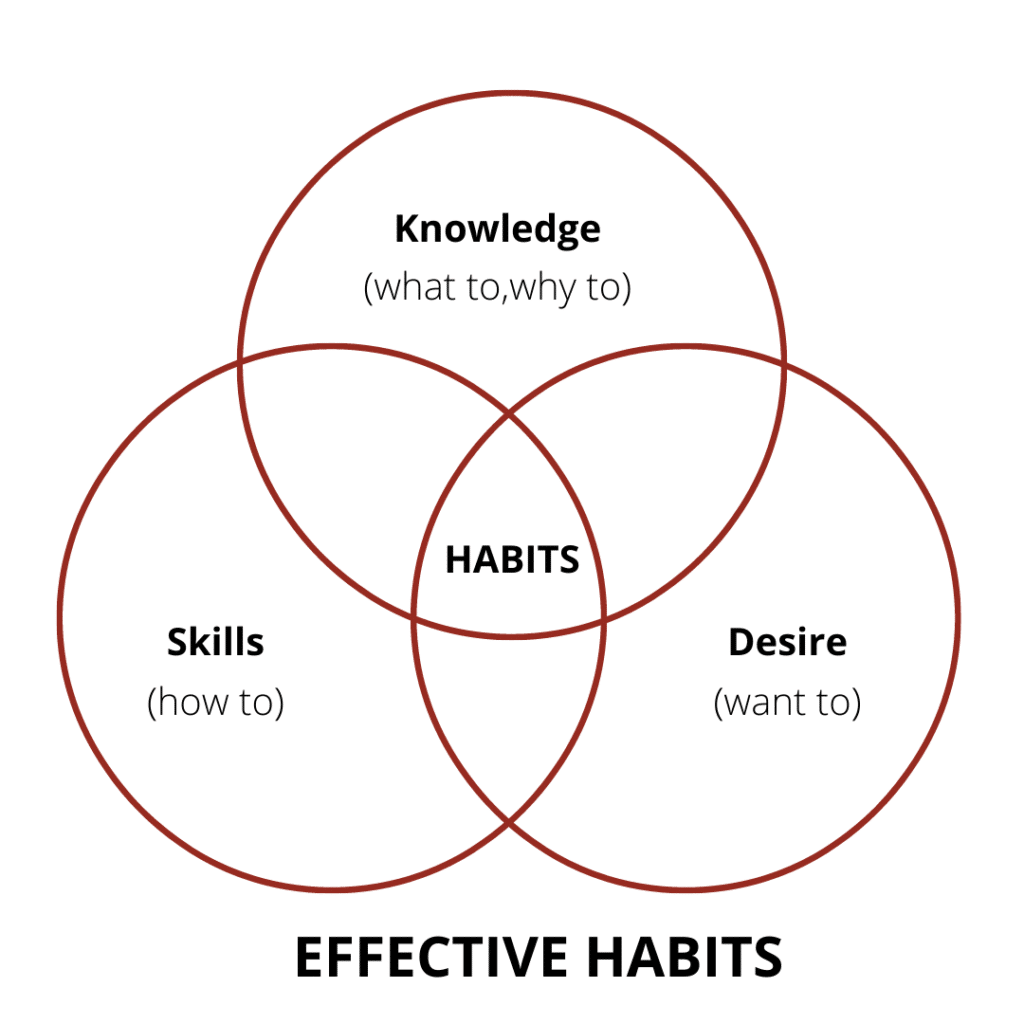
HABIT 1 Be Proactive
We can’t control what happens to us, but we can certainly control how we react to it. Reactive People let circumstances, environment, and conditions dictate their decisions. They don’t have a strong character base; they are personality-driven.
Proactive simply means taking initiative. It means taking responsibility. Responsibility= “Response-Ability” the ability to choose your response.
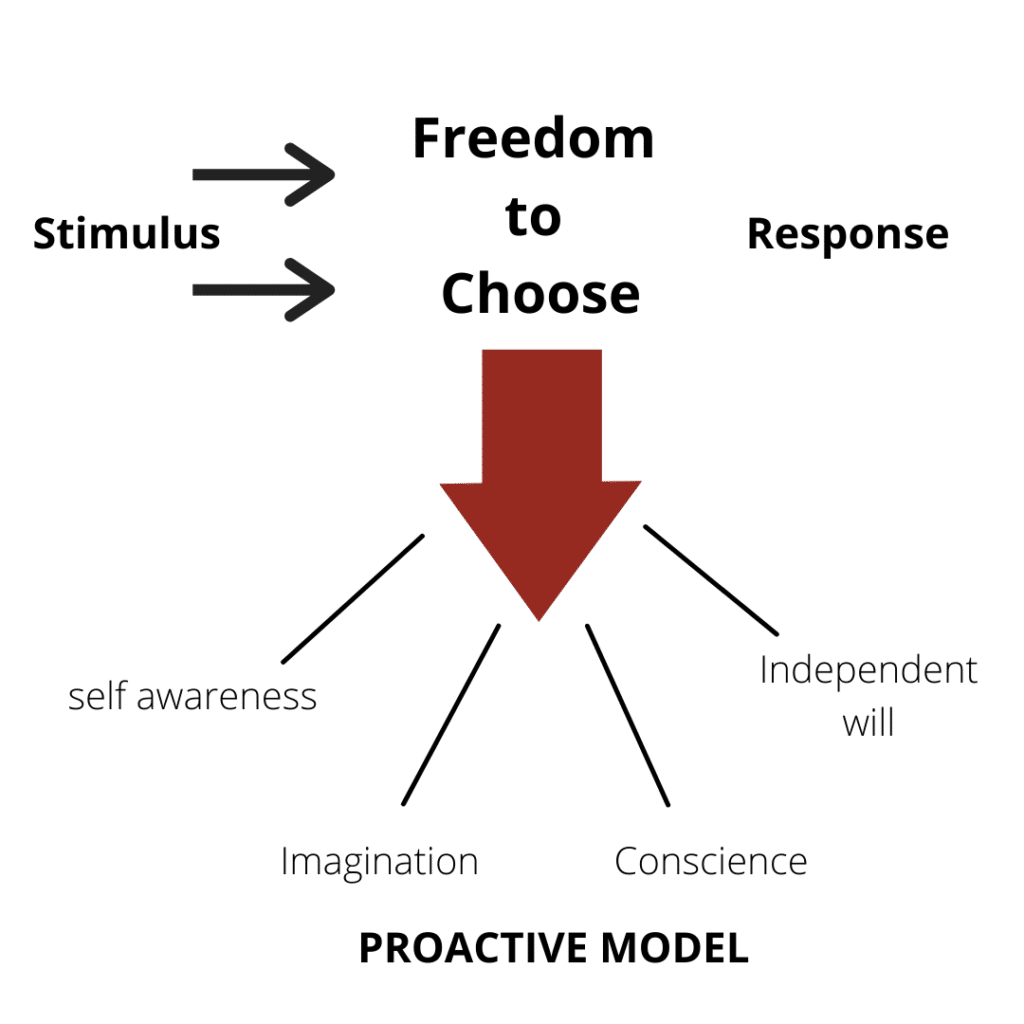
Highly proactive people recognize this responsibility. Our behaviors are a function of our decisions, not our conditions. We have the initiative and responsibility to make things happen.
Proactive People focus their efforts on the circle of influence (what they can control and attend to it first and get to the rest later). Reactive people on the other hand focus on the circle of concern.
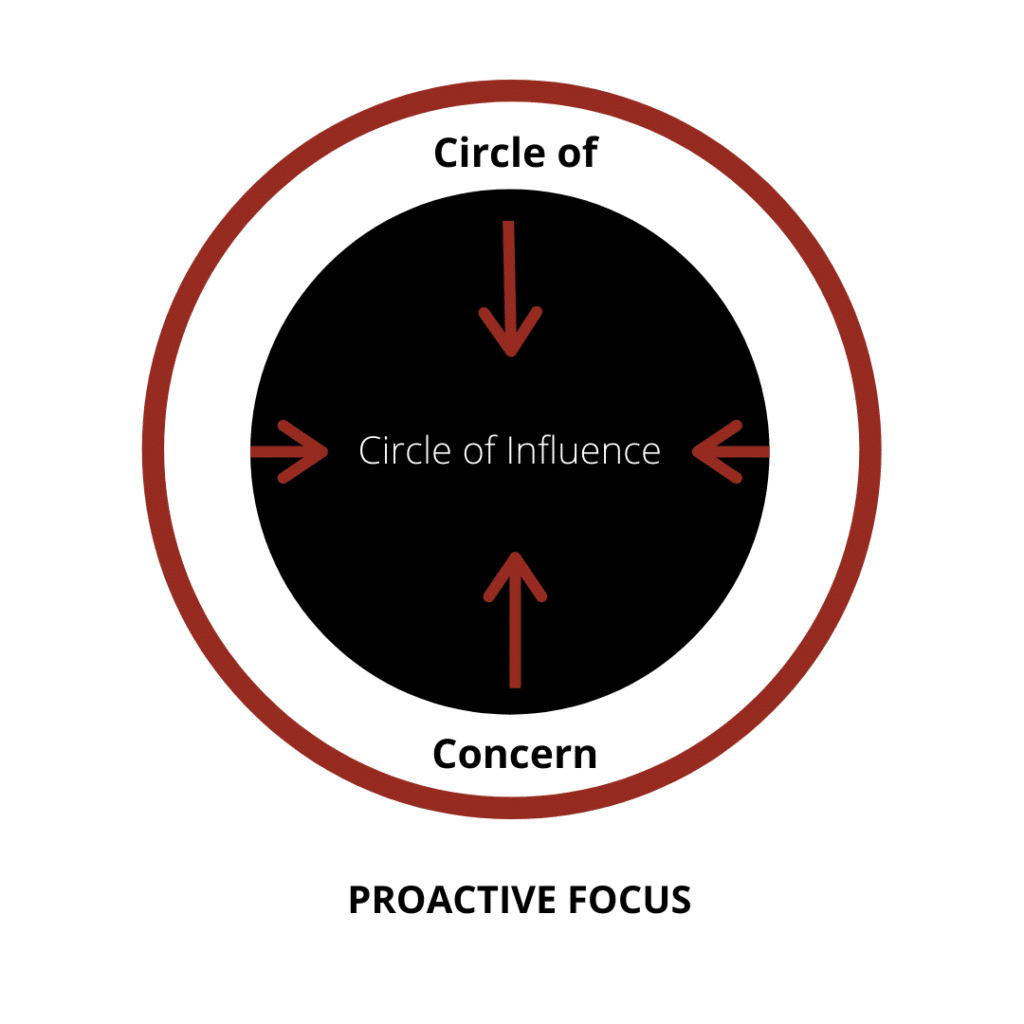
“Lord, grant me the strength to accept the things I cannot change, the courage to change the things I can, and the wisdom to know the difference.”
Reinhold Niebuhr
HABIT 2 Begin with the End in Mind
In order to begin with the end in mind, you must have a goal and a vision. As Arnold Schwarzenegger said if you don’t have a goal you’re like a bottlecap in an ocean just aimlessly drifting around.
Stephen Covey shares a darker example. If you want to come face to face with yourself, start picturing yourself on your deathbed, what kind of legacy do you want to leave behind?
It sounds very harsh, but if you close your eyes and picture this, you will get your answer. Once you see it in your head, you can then create it.
To practice Habit 2, start writing and use a Personal Mission Statement. A Personal Mission Statement is asking yourself what you can offer life. Don’t let any self-doubt get in the way, you are the programmer. Now you have a sense of mission.
HABIT 3 Put First Things First
This Habit is all about Productivity and Prioritization. We all have a list of things we need to do during the day, but we get to those which matter most first and to the rest later.
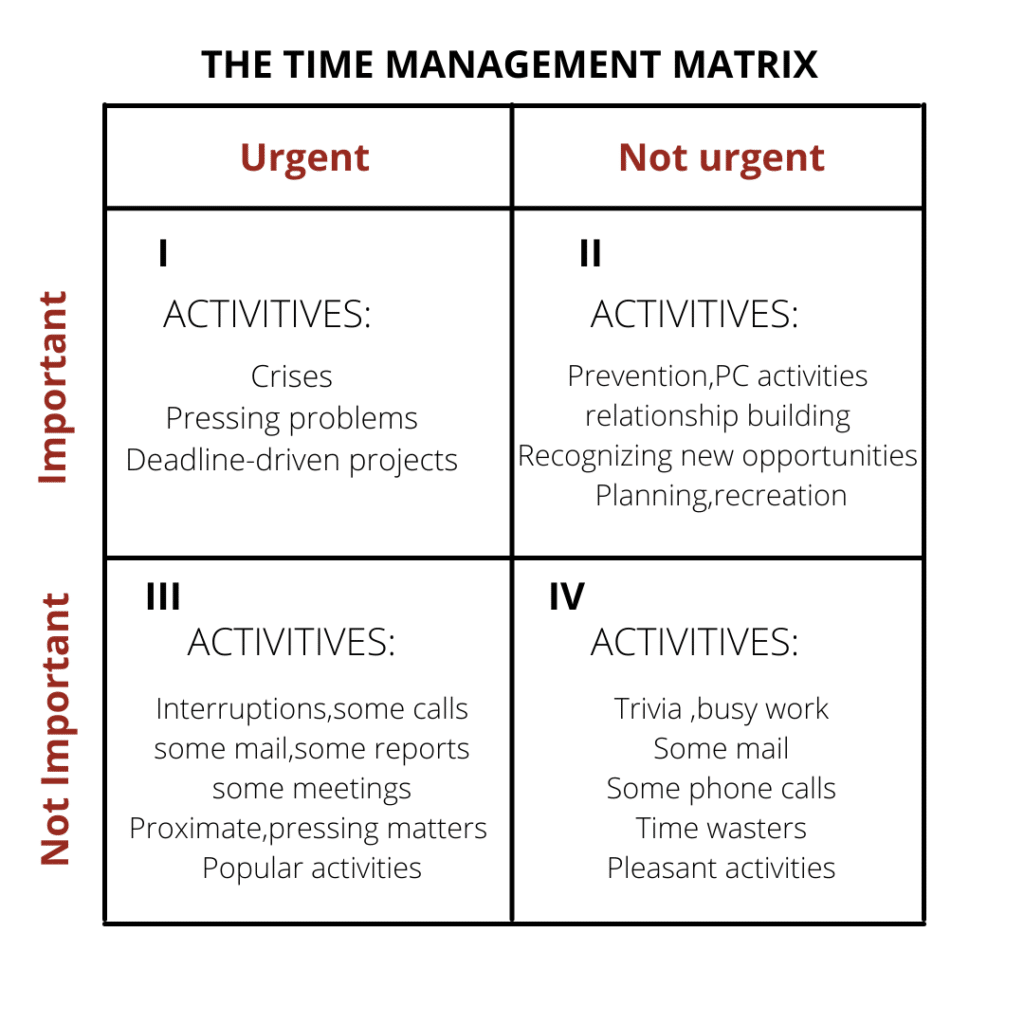
Real success is success with self. It’s not having material things but having mastery over one’s self. Successful people stay out of quadrants 3 and 4.
Effective people are opportunity minded they feed opportunities and starve problems. The Time Management Matrix gives clarity, accountability, and lays out responsibilities that you could delegate to others.
HABIT 4 Think Win/Win
The Emotional Bank Account– An Emotional Bank Account is a metaphor that describes the amount of trust that’s built in a relationship. It’s the safeness you have with another human being.
The Habit of effective interpersonal leadership is Think Win/Win. Win/ Win is based on the paradigm that there is plenty for everybody, you don’t have to be successful at the expense or exclusion of others.
There are two ways to build the biggest building in town: 1. Build the biggest building in town. 2. Tear down all the other buildings around you. Habit 4 focuses on 1. Win/Win seeks to work on establishing a mutually beneficial deal.
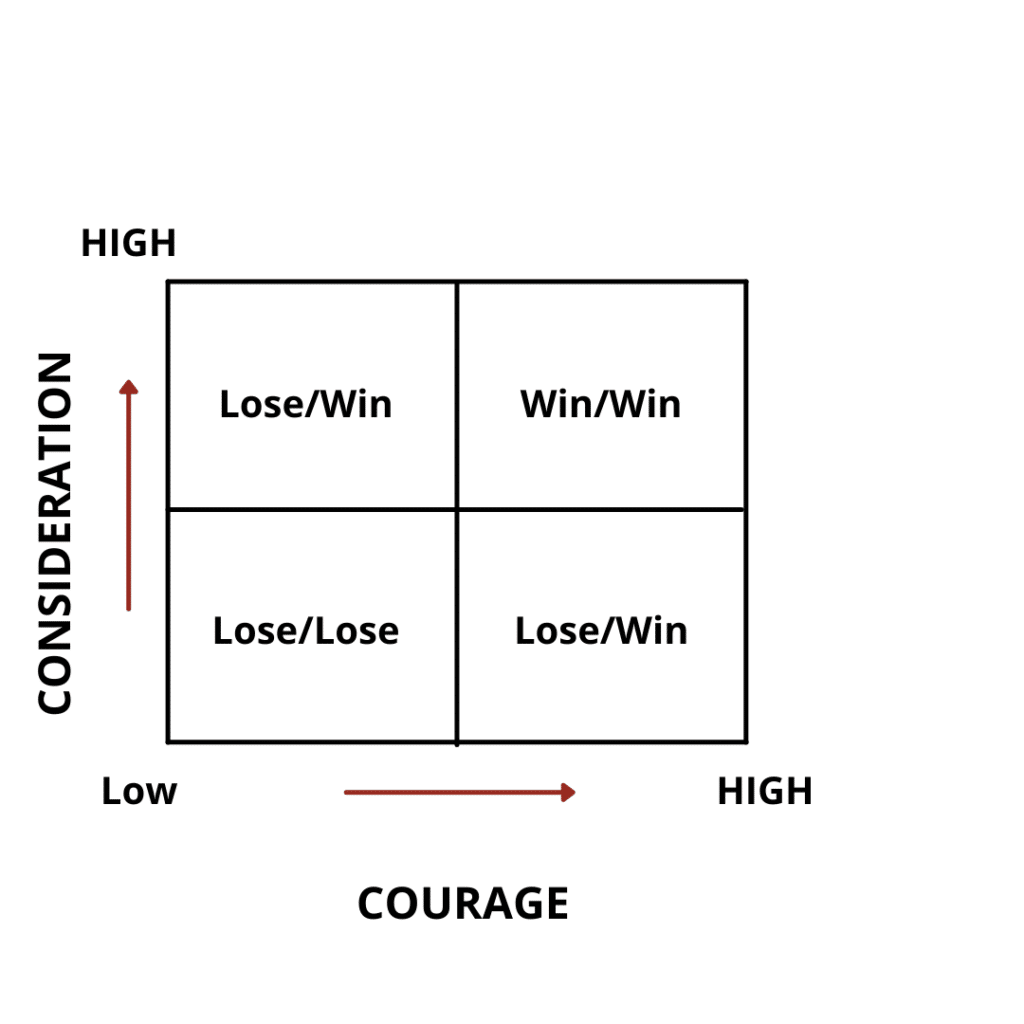
Consideration on the scale stands for your respect towards others, and courage is about respecting yourself. Win/Win helps people to cooperate and work harmoniously together.
HABIT 5 Seek First to Understand, Then to be Understood
We sometimes make hasty decisions without understanding the other person’s story, and that often leads to tumultuous relationships. We come to judgments based on people’s perception’s without an eye for empathy.
You can appreciate only what you can understand. Most people however do not listen with the intent to understand; they listen with the intent to reply and project their story.
To understand another person, we must first listen to them. Listen with an intent to understand (empathetic listening). If you don’t have confidence in the diagnosis, you won’t have confidence with the prescription.
Empathetic Listening is a huge deposit in the emotional bank account. It gives a speaker to open up; it gives personal-psychological air and furthers the conversation to new heights.
HABIT 6 Synergize
Synergy by definition means that the whole is greater than the sum of its parts. Different people have different strengths and skillsets, and they must be celebrated and not forced to conform.
The essence of synergy is to value differences to respect them, build on strengths, to compensate for weaknesses.
We must value differences in various areas of lives, for example, businesses and relationships. We must reach a common ground or there will always be problems.
Synergy helps in reaching the middle during unnegotiable times. It’s visible during teamwork, team-building, developing unity and creativity with other human beings.
“A single twig breaks, but the bundle of twigs is strong.”
Tecumseh
HABIT 7 Sharpen the Saw
You can stay busy and get nowhere or work smart and get somewhere. Habit 7 makes all the other habits possible. It’s the habit of efficiency and maintaining balance.
“Give me six hours to chop down a tree and I will spend the first four sharpening the axe.”
Abraham Lincoln.
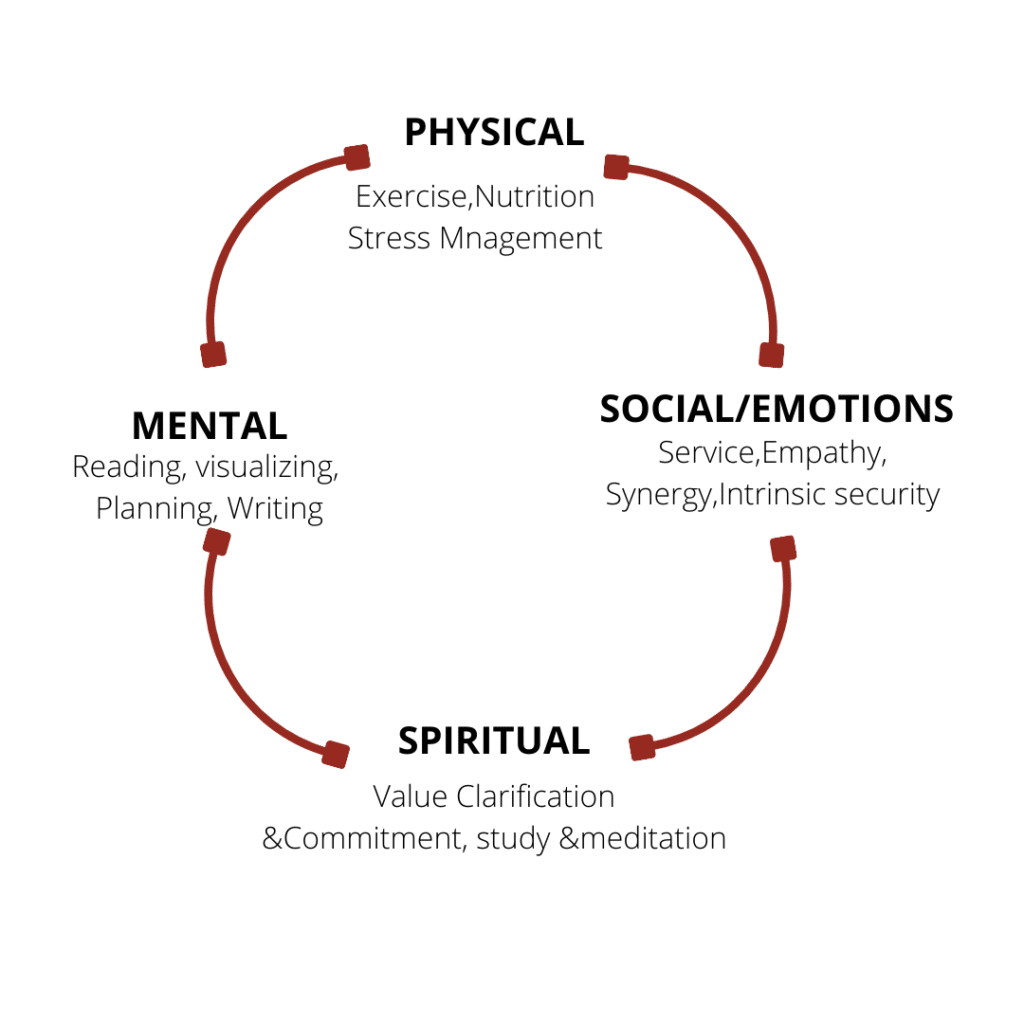
Sharpening the saw means expressing all 4 motivations. We are the instruments of our own performance, and to be effective, we need to recognize the importance of taking time regularly to sharpen the saw in all 4 ways.
Your physical health affects your mental health; your spiritual strength affects your social/emotional strength. Improving in one dimension helps you improve in other directions as well. This is Synergy in Renewal.
To keep progressing, we must learn, commit and do repeatedly.
